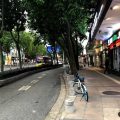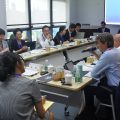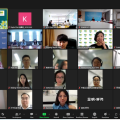ICLEI East Asia discusses with cities on urban green mobility in Beijing
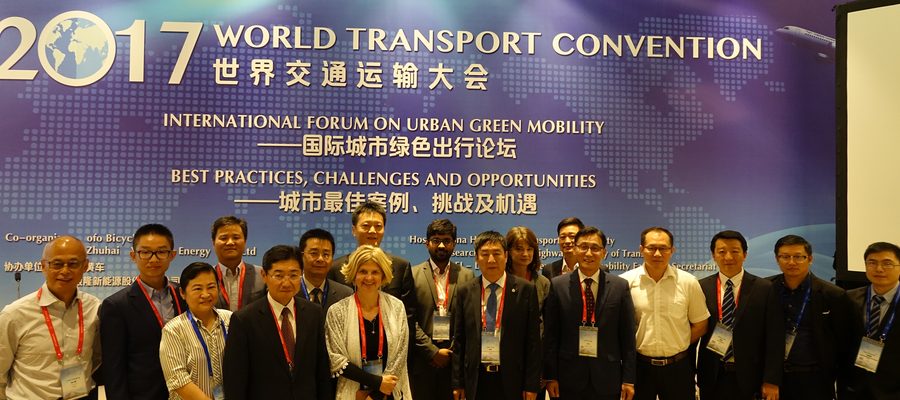
Rapid urbanization leads to population growth in cities, which also creates more demand to transport. Conventional solutions like increasing roads and highways may solve traffic problems in the short-run, but such infrastructure often results in higher number of vehicle ownership in longer term, and increases environmental burden, especially in air pollution. How to develop a greener transport strategy and encourage non-motorized transport has become a key address area for modern cities.
During the 2017 World Transport Convention in Beijing, China, ICLEI East Asia co-organized the parallel International Forum on Urban Green Mobility with China Highway and Transport Society (CHTS) and Research Institute of Highway, Ministry of Transport of China (RIOH) on 5 June.
Chaired by Tuanjie Cai, Deputy Director General of Transportation Services Division of Ministry of Transport of China, the forum was opened by an overview of global green mobility development by Shu Zhu, Regional Director of ICLEI East Asia and Sunny Kodukula, EcoMobility Program Manager of ICLEI, while Mingyuan Yu at RIOH shared his knowledge on green mobility development in China.
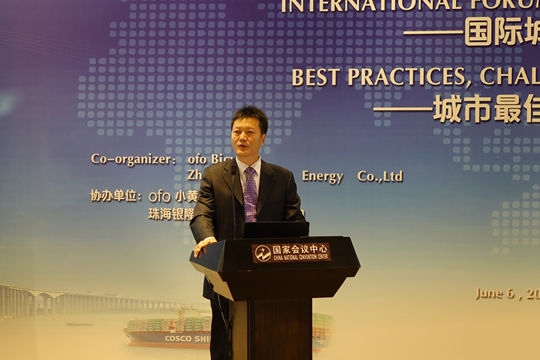
Tuanjie Cai, Deputy Director General of Transportation Services Division of Ministry of Transport of China, chairs the Forum.
The cities’ case session brought in 5 city leaders from Australia, China, Japan and Korea to share their experiences. Deputy Director Ping Pang of Beijing Municipal Commission of Transport presented the host city’s overall green transport policy and challenges, which are often viewed as unique given the city’ 21 million population and 6 million road vehicle ownership. Kazuyoshi Homma, Deputy Mayor of Saitama, focused on the city’s successful electric vehicle policy, achieved by sufficient charging network, supply and demand incentives, community education and fuel cell technologies.
Haoran Yu from Guangzhou Traffic Commission introduced the three pillars of green mobility system in Guangzhou: priority on public transport, urban development associated with green transport, and support from smart (data) technology. Ho-pil Gaok from Suwon city Urban Policy Division shared the city’s EcoMobility Festival, a one-month car-free festival jointly organized with ICLEI. Bryony Cooper from Access and Transport Unit of Sydney explained how the city managed to increase sustainable mobility while reducing car ownership through integrated planning.
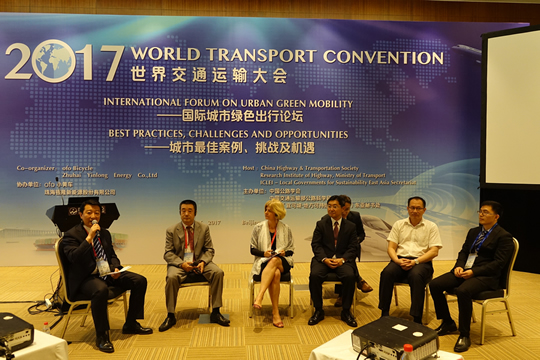
Speakers from Beijing, GIZ, Saitama City, Zhuhai Yinlong Energy and RIOH shared their knowledge on green mobility development.
As a major feature of the World Transport Convention, the forum was largely supported by rising bike sharing enterprise OFO, among others. The green enterprises joined the city officials and experts from Beijing University of Technology, GIZ and World Resources Institute on two panel discussions to exchange on green mobility policies and actions, ranging from public transport lanes, pricing, bike sharing, to technical topics like new energy vehicles, battery lifetime and charging efficiency.
Participants widely agreed sustainable government policies and systematic monitoring are critical factors to increase urban green mobility.
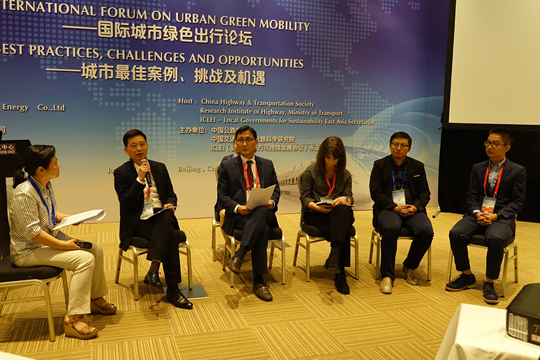
A lively panel discussion between speakers from Guangzhou (China), Suwon (Korea), Sydney (Australia), WRI China, and OFO Bicycle.


